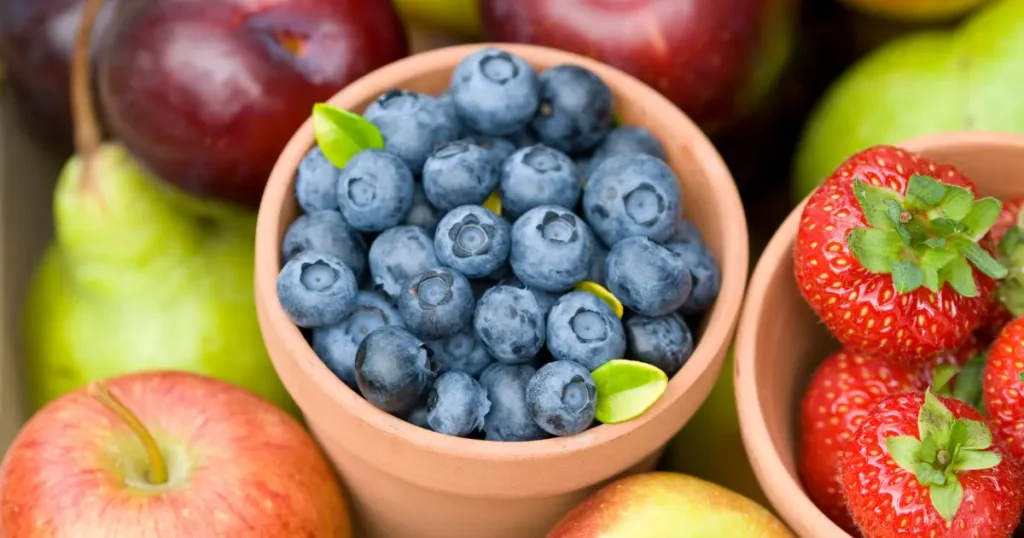Can Dogs Eat Dates? 6 Vital Safety Facts for Dog Owners
📋 QUICK ANSWER: Yes, dogs can eat dates in moderation. Remove pits completely – they’re choking hazards. Limit to 1-2 small dates due to high sugar content.
If you enjoy snacking on sweet, chewy dates, you might wonder: Can dogs eat dates too? The short answer is yes; dogs can eat dates in moderation, but there are several important considerations before sharing this sticky treat with your canine companion. While dates aren’t toxic to dogs, their high sugar content and potential choking hazard make them a treat that requires careful thought. This comprehensive guide explores everything you need to know about dates for dogs, from nutritional benefits to proper serving methods.
Table of Contents
Are Dates Safe for Dogs?
When dog owners ask, “Can dogs have dates?” the answer requires some nuance. Dates are not toxic or poisonous to dogs, unlike certain other foods such as chocolate, grapes, or xylitol-containing products. The flesh of dates doesn’t contain compounds that would cause immediate harm to your canine friend.
However, safety goes beyond mere toxicity. When considering whether dogs can eat dates fruit safely, we must account for:
- The extremely high sugar content
- The sticky texture that can adhere to teeth
- The pit, which poses a serious choking and obstruction risk
- The dense caloric content
- The potential for digestive upset in sensitive dogs
So while the technical answer to “can dogs eat dates” is yes, the practical answer requires careful preparation and moderation.
6 Key Facts About Dates for Dogs
Before deciding whether to offer this sweet treat to your pet, consider these six essential facts about dates for dogs:
1. Dates Are Extremely High in Sugar
Dates contain up to 80% sugar by weight, making them one of the sweetest fruits available. A single Medjool date contains approximately 16 grams of sugar; that’s about 4 teaspoons worth! This high sugar content raises several concerns:
- Potential weight gain if consumed regularly
- Dental issues due to sugar adhering to teeth
- Blood sugar spikes that could be problematic for some dogs
- Increased risk of diabetes with regular consumption
For dogs already struggling with weight management, diabetes, or dental problems, even small amounts of dates could exacerbate these conditions.
2. Dates Contain Beneficial Nutrients
Despite their high sugar content, dates do provide some nutritional benefits. When asking, are dates good for dogs from a nutritional standpoint? They do offer:
- Fiber: Supports digestive health and regularity
- Potassium: Essential for proper muscle and nerve function
- Magnesium: Supports energy production and bone health
- Vitamin B6: Important for brain development and function
- Antioxidants: Help combat cellular damage from free radicals
While these nutrients are beneficial, they can be obtained from more suitable food sources without the accompanying high sugar content.
3. Date Pits Are Hazardous

When considering can dogs eat dates fruit safely, the pit is a major concern. Date pits present serious hazards:
- Choking risk, especially for small to medium-sized dogs
- Potential intestinal blockage if swallowed
- Dental damage if a dog attempts to chew the hard pit
- Small amounts of cyanide compounds similar to those in apple seeds
Before giving your dog even a tiny piece of a date, always remove the pit entirely. Never assume your dog will eat around the pit; many dogs gulp treats without thoroughly chewing.
4. Moderation Is Absolutely Critical
For dogs that can safely eat dates, extreme moderation is essential. Even the smallest amount of this high-sugar fruit should be considered a special treat, not a regular part of your dog’s diet.

Appropriate serving sizes based on dog weight:
| Dog Size | Maximum Date Serving | Frequency |
|---|---|---|
| Small (under 20 lbs) | ¼ of a date (or less) | Occasional treat only |
| Medium (20-50 lbs) | ½ of a date (maximum) | Occasional treat only |
| Large (over 50 lbs) | 1 small date (maximum) | Occasional treat only |
Remember that “occasional” means once a week at most, and for many dogs with health considerations, dates should be avoided entirely.
5. Some Dogs Should Never Eat Dates
Certain dogs should avoid dates completely, regardless of serving size. When answering “can dogs have dates?” for these populations, the answer is no:
- Diabetic dogs: The high sugar content could dangerously impact blood glucose levels
- Overweight or obese dogs: The high calorie density isn’t appropriate for weight management
- Dogs with dental issues: The sticky texture can adhere to teeth and worsen dental problems
- Dogs with pancreatitis: The high sugar content could trigger inflammation
- Dogs with a history of digestive sensitivity May experience diarrhea or other digestive upset
Always consider your individual dog’s health status when deciding whether dates are appropriate, even as an occasional treat.
6. Better Fruit Alternatives Exist
When looking for fruit treats for dogs, many options provide better nutritional profiles with lower sugar content than dates. Instead of dates for dogs, consider:

- Blueberries: Lower in sugar, high in antioxidants, and easy to serve
- Apple slices: Moderate sugar, good fiber content (remove seeds and core)
- Watermelon: High water content, refreshing, and lower in sugar (remove seeds and rind)
- Strawberries: Rich in vitamins and lower in sugar than dates
- Pears: Offer fiber and vitamins with moderate sugar content (remove seeds and core)
These alternatives provide nutritional benefits without the extreme sugar concentration found in dates.
For dogs with dental issues or those who have trouble chewing, unsweetened applesauce provides a softer texture while still offering nutritional benefits.
How to Safely Serve Dates to Dogs
If you’ve determined that your dog can have an occasional date treat, follow these guidelines for safe preparation and serving:
Proper Preparation
- Choose dates that are fresh, unsulfured, and free of preservatives or added sugar.
- Wash thoroughly to remove any surface contaminants
- Remove the pit completely, checking carefully for pit fragments
- Cut into small, appropriate pieces based on your dog’s size
- Consider mashing or chopping finely for easier consumption and digestion
Serving Suggestions
- Offer as a special training reward when exceptional motivation is needed
- Mix a tiny amount with regular food as an occasional flavor enhancement
- Stuff a very small piece inside a dog-safe chew toy for longer-lasting enjoyment
- Freeze small pieces for a different texture experience
Remember that even with proper preparation, dates should remain an infrequent treat, not a regular part of your dog’s diet.
Potential Risks and Concerns
When deciding if can dogs eat dates, be aware of these potential risks:
Blood Sugar Impact
Dates can cause rapid spikes in blood sugar levels. Even for healthy dogs, this can lead to:
- Energy level fluctuations
- Increased thirst and urination
- Potential mood changes
For dogs with diabetes or pre-diabetic conditions, even a small amount of date could significantly impact blood glucose management.
Caloric Density
Dates are extremely calorie-dense. A single Medjool date contains approximately 66-67 calories—a significant amount for dogs, especially smaller breeds. This caloric density makes dates a poor choice for:
- Regular treats
- Dogs on weight management programs
- Training rewards (where multiple treats might be given)
Digestive Upset
Some dogs may experience digestive disturbances from dates, including:
- Diarrhea
- Stomach discomfort
- Gas or bloating
- Changes in stool consistency
If your dog shows any of these signs after consuming dates, discontinue offering them immediately.
Dental Concerns
The sticky, sugary texture of dates makes them particularly problematic for dental health. They can:
- Adhere to the teeth and gumlines
- Provide a substrate for bacterial growth
- Contribute to plaque and tartar buildup
- Potentially worsen existing dental issues
Without proper dental care, even occasional date consumption could contribute to dental problems over time.
Signs Your Dog Shouldn’t Eat Dates
Monitor your dog closely after offering even a small piece of date. If any of these signs occur, dates should be permanently removed from their treat options:
- Digestive upset (vomiting, diarrhea, or discomfort)
- Excessive thirst or urination (may indicate blood sugar impacts)
- Behavioral changes following consumption
- Allergic reactions (though rare) could include itching, swelling, or respiratory changes.
- Changes in stool consistency or color
- Reluctance to eat regular meals after having dates
Always err on the side of caution; many dogs can live perfectly happy, healthy lives without ever tasting a date.
Comparing Dates to Other Dog-Safe Fruits
When evaluating if dates for dogs are appropriate compared to other fruits, consider this comparison:
| Fruit | Sugar Content | Fiber Content | Caloric Density | Choking Risk | Overall Suitability |
|---|---|---|---|---|---|
| Dates | Very High | Moderate | Very High | Moderate (with pit) | Low/Occasional Only |
| Blueberries | Moderate | High | Low | Low | High |
| Apple | Moderate | High | Low | Low (without core) | High |
| Banana | High | Moderate | Moderate | Low | Moderate |
| Strawberries | Low | Moderate | Low | Low | High |
| Watermelon | Moderate | Low | Low | Low (without seeds) | High |
| Pears | Moderate | High | Low | Low (without core) | High |
As this comparison shows, several fruits offer better nutritional profiles with fewer concerns than dates.
Watermelon flesh is much lower in sugar than dates and offers superior hydration, though its rind requires careful preparation if offered at all.
Mandarins contain less sugar than dates but have acidity that some dogs may not tolerate well.
Persimmons pose distinct risks from their seeds and unripe flesh, while dates’ primary concern is their high sugar content.
How Dates Compare to Commercial Dog Treats
When considering treats for your dog, it’s worth comparing homemade options like dates to commercial alternatives:
Dates vs. Commercial Treats:
- Sugar content: Many commercial treats contain added sugars, but typically less than dates
- Preservatives: Dates have none, while many commercial treats contain preservatives
- Processing: Dates are minimally processed compared to many commercial options
- Consistency: Commercial treats offer consistent size and nutritional content
- Convenience: Commercial treats don’t require preparation
- Dental impact: Many commercial treats are designed to reduce dental issues, unlike sticky dates
For most dogs, high-quality commercial treats formulated specifically for canines provide a better balance of nutrition, safety, and enjoyment than dates.
Are Dates Good for Dogs with Specific Health Conditions?
While dates contain nutrients that might seem beneficial for certain health conditions, their high sugar content generally outweighs these benefits. Let’s examine specific health scenarios:
Constipation
The fiber in dates might seem helpful for constipation, but other options are more suitable:
- Canned pumpkin (plain, not pie filling)
- Fresh vegetables like green beans
- Psyllium husk (in appropriate amounts)
These alternatives provide fiber without the high sugar content.
Energy Boosts
The natural sugars in dates provide quick energy, but this can lead to problematic energy spikes and crashes. Better energy sources include:
- High-quality protein sources
- Complex carbohydrates from appropriate dog foods
- Properly formulated commercial dog treats
Vitamin and Mineral Supplementation
While dates contain beneficial minerals like potassium and magnesium, dogs should get these nutrients primarily from a complete and balanced dog food. If supplementation is needed, it should be:
- Recommended by a veterinarian
- Specifically formulated for dogs
- Carefully dosed for your dog’s specific needs
Key Takeaways About Dates for Dogs
- Can dogs eat dates? Yes, technically, but with significant cautions
- Can dogs have dates regularly? No, they should be an occasional treat at most
- Can dogs eat dates fruit with the pit? Absolutely not—pits must always be removed
- Are dates good for dogs? Generally, no—their high sugar content outweighs their nutritional benefits
- Dates for dogs should only be tiny portions on special occasions.
- Many dogs should avoid dates entirely due to health considerations
- Better fruit alternatives exist that offer more benefits with fewer concerns
Conclusion
So, can dogs eat dates? While not toxic, dates should be approached with extreme caution due to their high sugar content, caloric density, and potential for digestive upset. For most dogs, dates should be a rare treat offered in very small amounts, if at all.
When considering can dogs have dates as part of a balanced diet, remember that fruits should make up only a small percentage of your dog’s overall food intake. For dogs with health conditions like diabetes, obesity, dental issues, or digestive sensitivities, dates are best avoided completely in favor of more suitable treats.
If you do choose to offer your dog the occasional date treat, ensure proper preparation by removing pits, washing thoroughly, and cutting into appropriate sizes. Monitor your dog closely for any adverse reactions, and discontinue if any concerns arise.
Ultimately, your dog can enjoy a varied, nutritious diet without ever tasting dates. Consider the many safer, more nutritionally appropriate fruits and commercial treats formulated specifically with your dog’s health in mind. When in doubt, consult with your veterinarian about the best treat options for your specific dog’s needs and health status.
Frequently Asked Questions
Can puppies eat dates?
Puppies should not eat dates. Their developing digestive systems are more sensitive than adult dogs, and they have specific nutritional needs for proper growth and development. Additionally, puppies are at higher risk of choking and intestinal blockages. Focus instead on puppy-specific treats recommended by your veterinarian.
What should I do if my dog accidentally eats a date pit?
If your dog swallows a date pit, monitor them closely for signs of choking, discomfort, or intestinal blockage. Watch for symptoms like vomiting, constipation, abdominal pain, loss of appetite, or lethargy. Get in touch with your veterinarian right away if you see any alarming symptoms. For small dogs, especially, a date pit could cause a serious intestinal obstruction requiring emergency intervention.
Are dried dates worse than fresh dates for dogs?
Yes, dried dates are even more concentrated in sugar than fresh dates, making them even less suitable for dogs. The dehydration process removes water and concentrates the sugars, resulting in an even higher caloric density. If you do offer dates to your dog occasionally, fresh dates in very small amounts are preferable to dried varieties.
Can dates help with my dog’s constipation?
While dates contain fiber that theoretically could help with constipation, their extremely high sugar content makes them a poor choice for digestive issues. Better options for occasional constipation include plain canned pumpkin (not pie filling), a small amount of bran, or fresh vegetables like green beans. Always consult your veterinarian for persistent constipation, as it could indicate underlying health issues.
How many dates would be toxic to a dog?
Dates aren’t toxic in the traditional sense; they don’t contain compounds that are poisonous to dogs like chocolate or xylitol do. However, consuming multiple dates could cause significant problems, including severe digestive upset, pancreatitis, or dramatic blood sugar fluctuations. The risk is proportionally higher for small dogs. Even one whole date is too much for most dogs, especially small breeds.







